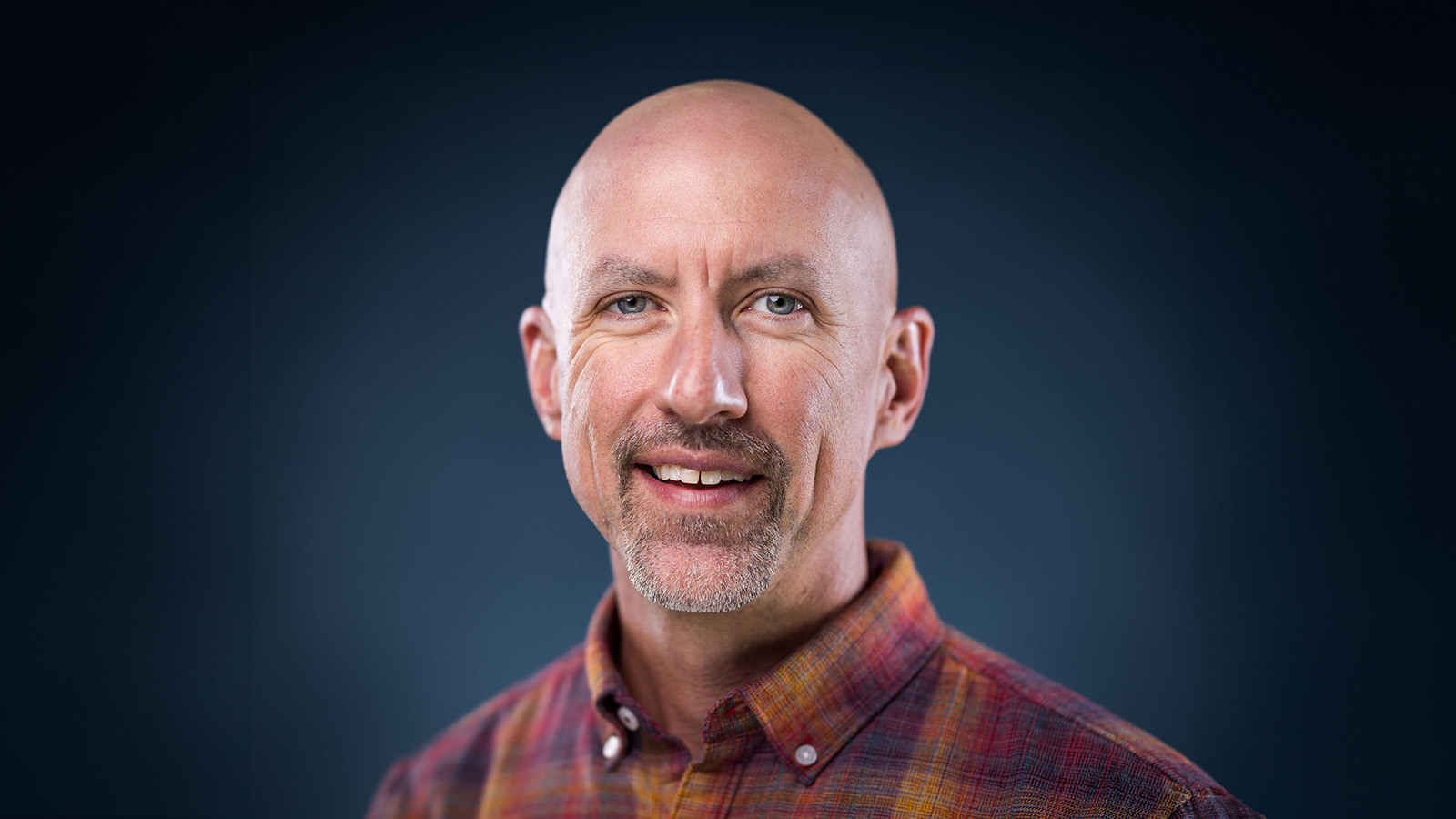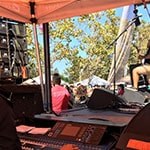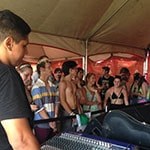Full Sail Stories
Published Apr 16, 2025
Faculty Spotlight: Corbett Compel (Show Production)
Corbett Compel brings his experiences working at ESPN and the Golf Channel to his Sports Broadcast Production course.

Update: In August 2025, Full Sail’s Show Production program was updated and is now Live Event Production Bachelor’s.
“One of the best compliments I ever got from a student was ‘You ruined watching [sports] for me,’” says Corbett Compel, the Course Director for Sports Broadcast Production in Full Sail’s Show Production degree program. “And I said, ‘Well, that's because you're learning, that means you're noticing all these things [in the broadcast] you didn't notice before.’”
After 18 years in the sports broadcasting industry and years teaching at Full Sail, Corbett often finds it difficult to sit back and enjoy live sports as a viewer because he knows the behind-the-scenes world all too well. But he’s learned that comes with the territory of producing live sports, and for him, it means he’s good at his job.
Corbett has loved watching sports on TV since childhood. Growing up in Miami, he’d go to a lot of University of Miami football games at the Miami Orange Bowl stadium. He saw the cameras capturing the games at the stadium and became curious about how live sports productions came together. He studied Communications at the University of Miami and discovered the television studios and control rooms where student-produced newscasts were put together. He’d watch directors calling shots and bringing entire productions to life in live environments. It all piqued his interest, so he decided to pursue sports production professionally.
After graduation, he worked at local television stations as a studio technician, assistant director, and director for eight years. Then he landed his dream job — Associate Director at ESPN. While there, he worked on Baseball Tonight, SportsCenter, NASCAR Now, NFL Live, and some international sports coverage for soccer, cricket, and rugby.
“I learned how high the expectations were,” Corbett shares. “It's very demanding. They expect everything to be done at a high level, from production to writing to graphics to video editing. So to make live TV in that high-pressure environment was definitely a challenge, but you work with some of the best people in the business because it attracted those people and [ESPN] sought those people out.”
One of Corbett’s favorite memories at ESPN was covering college football in the fall of 2007, when Appalachian State beat the University of Michigan in a surprise upset. “It was seismic,” he reflects.
After five years at ESPN, Corbett got a job at Golf Channel, where he worked as an Associate Director for another five years. One career highlight was working on coverage of the Masters Tournament. At both ESPN and Golf Channel, Corbett worked with former athletes turned commentators, including former Steelers quarterback Kordell Stewart and all-star Boston Red Sox shortstop Nomar Garciaparra.
Corbett spent 18 thrilling years in the industry, but eventually found himself looking for a change. A colleague from ESPN had taught at Full Sail and recommended Corbett for the open position of Course Director for Sports Broadcast Production in the Show Production degree program. That’s where Corbett has been for the last several years.
“In production, there's always a lot of teaching,” Corbett says. “It's inherent in the job, whether it's talking a camera operator through a shot you want, teaching people the workflow, teaching people control room etiquette. So, standing up in front of a classroom talking about things was a natural progression for me.”
In his class, Corbett will often show clips of recent live sports and broadcast fails, and he’ll talk about the what went well and what didn’t in the production. He’ll address bad camera shots, camera operators getting run over on the sideline, graphics mistakes, and how students can avoid blunders like these in their future careers. As a final project, students create a sports broadcast production of their own on campus, involving games such as ping-pong, cornhole, esports tournaments, and most recently Jeopardy!
“They really have to think through how this is going to look to the viewer at home. Whether you're watching Jeopardy! or a football game, you're going to have certain expectations for shots you're going to see, for graphics or camera [angles], so they have to think about how that's going to be presented, how it's going to translate from studio to camera to a television at home. So, I really try to say yes to creativity.”
Corbett is also one of two department chairs for the Show Production program, where he oversees lighting and video teams, keeps the equipment up to date, and does various administrative tasks. Overall, he supports the department so students have the knowledge, skills, and experience they may need when they go out in the workforce.
“I’m student-first,” Corbett says. “I want to put the students in the best position to succeed, from making schedule accommodations to saying yes to their creative process.
“I hope [students] take away an understanding of the complexity of sports broadcast productions [from my class],” he continues. “I hope they can still enjoy a game on TV when they watch it, but that there's an understanding of how much goes into it from a personnel standpoint, an experience standpoint, and a technology standpoint.”



